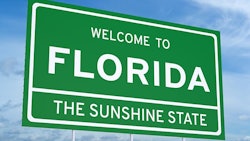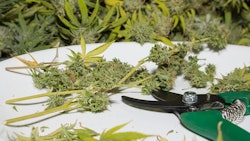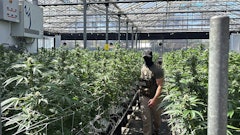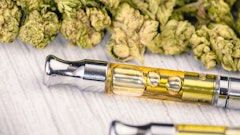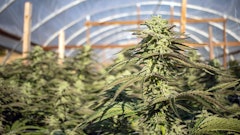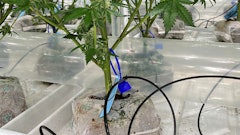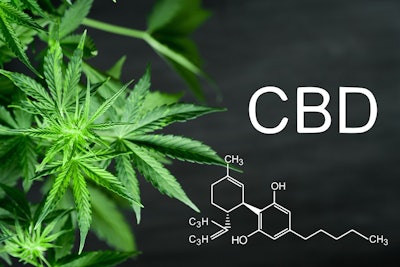
In early July, the California Department of Public Health (CDPH) issued a revised “FAQ” memo that contained a blanket policy on industrial hemp-derived CBD products. In short, the state seemed to be banning them.
The relevant question drew a stark line in the sand:
“1. What forms of Industrial hemp derived products will and will NOT be allowed in food in California?
Will be allowed in food (without any claim for health benefits):
- Seeds derived from Industrial hemp
- Industrial hemp seed oil or hemp seed oil derived from industrial hemp
Will NOT be allowed in food:
- Any CBD products derived from cannabis
- Any CBD products including CBD oil derived from industrial hemp
- Hemp oil that is not derived from industrial hemp seeds
- Industrial hemp seed oil enhanced with CBD or other cannabinoids”
What seemed like a blanket ban, however, is far more nuanced than that. Much like the constant industry-wide debate over the legality of CBD products, the new policy statement from CDPH requires something of a Socratic dialogue to elucidate.
David Bonvillain, founder of Colorado-based CBD producer Elite Cannabis Enterprises, told Cannabis Business Times that the FAQ is a natural step in the state’s efforts to clarify the boundaries of cannabis regulation and of public health policy. California, he said, had tended to follow federal guidance on industrial hemp for years. As iterations of the U.S. Farm Bill were approved by Congress and as iterations of HIA v. DEA ended in judicial opinions, federal policy on hemp became clearer—slowly.
As those decisions came and went, an untold number of California business began using CBD isolates as food ingredients—in coffee, for instance, or as a nutritional supplement of sorts. But those products fell outside the realm of cannabis regulations and outside the boundaries of FDA oversight.
“Industrial-hemp CBD products have proliferated at a rapid pace for the past two years in California,” Joanna Hossack, an attorney at Clark Neubert LLP, told Cannabis Business Times. “This could be due to the development of Farm Bill Pilot Programs to cultivate industrial hemp, sparse and sporadic enforcement, and the widespread interpretation that CBD, as it is not psychoactive, is essentially legal. There has been a tremendous misunderstanding that CBD is legal in all 50 states and can be sold without limitation. The industrial-hemp and CBD issue is in constant flux.”
“Prior to the release of their FAQ/memo, the state had not taken a formal position on CBD products derived from industrial hemp,” added Habib Bentaleb, attorney at Harris Bricken. “Before, we had a legal landscape of mixed messages from the Drug Enforcement Agency, and we also had Congress using its power of the purse to prohibit federal enforcement actions against hemp cultivators growing in accordance with the 2014 Farm Bill. This uncertainty allowed CBD manufacturers working outside of California’s cannabis regulatory structure to claim that their products were legal.”
Officially, the U.S. FDA allows only the fiber and oil from hemp seeds to be used in food products. This stance comes from the 2004 precedent set by an earlier iteration of HIA v. DEA, and CDPH is aligning its own policy in the same way.
“There’s been a big rush into the CBD space, and ultimately CBD’s popularity became too big for the state to ignore,” Bentaleb said. “We also can’t overlook the fact that the CDPH takes its mission of protecting the health of California residents seriously. What we are seeing in the marketplace is companies making a wide number of claims touting health benefits with no real evidence to back them up. It was only a matter of time before the state was going to step in.”
While the timing of the FAQ in early July may have been a bit of a surprise, the policy statement carries a note of inevitability to it.
“The Department of Public Health finally just basically said, ‘Well, here’s how this is actually regulated,’” Bonvillain said. “And everybody who’s processing a bunch of CBD, you know, officially the FDA’s stance is that that CBD is not a food ingredient, and so you have to stop doing what you’re doing.”
That said, the CDPH policy doesn’t lean on the state’s other cannabis regulatory agencies. Licensed growers may of course grow CBD-rich strains of cannabis, which can then be used in manufacturing and processing for edibles. The oversight of that process falls into a wholly distinct silo; licensed cannabis manufacturers and their edibles are tracked and traced by Metrc.
The CDPH’s clarified policy affects those businesses that are not operating within the licensed and regulated cannabis market—they may not manufacture or sell food products that include CBD as an ingredient. And to those licensed growers who are growing CBD-rich strains of cannabis, they too must stay in their lanes and not sell that cannabinoid content to food manufacturers that fall outside the boundaries of the regulated cannabis industry in California.
“This is most likely a response to an immense outpouring of questions that have been sent to the California Department of Public Health Manufactured Cannabis Safety Branch asking about industrial-hemp derived CBD products, and whether they can be manufactured or sold in California,” Hossack said. “The notice states that it is being provided in response to numerous inquiries from businesses who want to use industrial-hemp derived CBD oil in food products. The question and confusion about the issue has been building for a while, and they are providing clarity to the public on this complicated issue.”
Currently, only certain educational institutions are prohibited to grow industrial hemp in California, and the California Department of Food and Agriculture (CDFA) is still in the process of establishing an industrial hemp program, Hossack said, which may allow more opportunities to grow hemp sometime in 2019.In the past few months, there has been activity at both the federal and state level to regulate CBD as a pharmaceutical and agricultural product, Hossack added. With the FDA’s approval of Epidiolex, the first cannabis-derived CBD drug for the treatment of epilepsy, CBD must now be rescheduled by the DEA in order for the drug to be legally sold. At the state level, California passed AB 710, a bill that allows pharmacies to sell FDA-approved CBD drugs, such as Epidiolex, once CBD is rescheduled.
Sen. Mitch McConnell has introduced the Hemp Farming Act of 2018 to legalize hemp as an agricultural product and remove it from the Controlled Substances Act. “If passed, this would create a paradigm-shift in the legal landscape for industrial hemp,” Hossack said.
SB 1409 is now moving through the California legislature, and would create a Farm Bill-compliant industrial hemp pilot program in the state, allowing the CDFA to regulate hemp cultivation for research purposes. “The bill would allow cultivation of hemp for a variety of uses, including manufacturing CBD products,” Hossack added.
Any manufacturers and retailers who continue to produce and sell hemp-derived CBD products outside of the licensed cannabis industry should be prepared for possible legal action, Hossack said. “Whenever a business operates within a legal grey area that is constantly in flux, they need to be prepared for legal challenges, both criminal and civil,” she said. “We have no way to know what enforcement against manufacturers and retailers will look like. Any business engaging in the industrial-hemp derived CBD market should obtain legal counsel and pay very close attention to developing trends with both industrial hemp, and CBD products.”
“Now that the CDPH has made its position clear, the next big question is: How are they going to enforce it?” Bentaleb said. “Do they have the necessary resources to enforce this prohibition? No one knows the answer to that yet, so we’ll have to wait and see.”
Top photo courtesy of Adobe Stock











